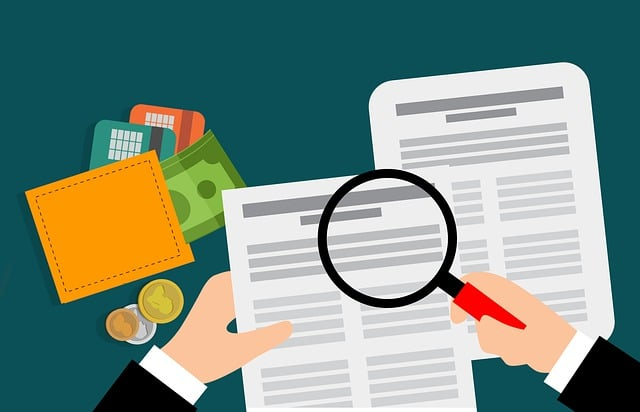Understanding the Fair Credit Reporting Act: Who Can Pull My Credit and Why?
Josh Richner • 03 Aug, 2023

Understanding the Fair Credit Reporting Act: Who Can Pull My Credit and Why?
It's important to know that not just anyone can take a peek at your credit report. The Fair Credit Reporting Act (FCRA) has guidelines that limit businesses' access to your credit information, ensuring it’s only viewed when there's a legitimate business purpose or reason.
You might be wondering what counts as a 'legitimate business purpose?' We'll unravel this mystery as we delve into the various scenarios where a business can legally review your credit reports.
By understanding these situations, you'll be better equipped to safeguard your credit score and your financial health.
Who Can Pull My Credit Report?
Below are the legally recognized reasons why a company might want to access your credit report.
Applying for Jobs
Your creditworthiness is one-way potential employers can gauge your reliability and trustworthiness. So, if you're applying for a job that requires access to confidential information or a high level of financial responsibility, an employer might check your credit report as part of the background check.
Applying for Loans & Other Financial Products
You can expect a credit check when you start looking into loans or other financial products like mortgages or credit cards, the lender will likely check your credit report. Your credit report provides insight into your financial behavior and helps the company decide if you're a good fit for their product and what rate to charge. Applying for a loan results in a 'hard inquiry' to your credit report, which can lower your credit score.

Promotional and Marketing Purposes
Credit card issuers, mortgage lenders, and other companies may conduct credit checks without written permission to determine if you're qualified for their financial product. They can access your credit through each of the three credit bureaus and send promotional offers based on the information in your consumer reports. Since consumers do not give written consent or even request these inquiries, they are 'soft inquiries' and do not affect your credit scores.
Government Agency Review
In certain circumstances, government agencies might check your credit reports. The Patriot Act broadened government access to credit reports by authorizing access to credit reports without a court order "to conduct investigations of, or intelligence or counterintelligence activities or analysis related to, international terrorism." Government agencies may also access your credit when you apply for a federal loan, determining child support obligations, eligibility for public assistance, and more.
Applying for Insurance
Insurance companies use your credit reports to get an idea of how you manage your finances and set premiums accordingly. If you're applying for a home or car insurance policy, expect the insurance company to review your credit history.
Rental Application
When you're applying for an apartment or rental home, the landlord may check your credit report to decide whether or not they want to consider as a tenant. Your credit score and payment history shed light on how you keep up with financial responsibilities and can help them decide whether or not to approve your application.
Opening a New Bank Account
When you open a new bank account, there's usually an application process that includes reviewing basic information about you. This might include a check of your credit report so that the bank can evaluate whether or not to open an account with you.
Opening Up an Account or Contracting Services
When you apply to open up an account, such as a cell phone contract or working with new utility companies, the business might check your credit report before approving you for the account or service. Those with poor credit may not be approved for certain services or may be required to pay a larger security deposit to utility companies, cell phone providers, and more.
Promotion Scrutiny
If you're applying for a promotion at work, it's possible that your employer may review your credit report as part of their review process. This is especially true if you are working with business finances. They want to make sure that any additional responsibility and access to company funds is being given to a trusted employee.
Monitoring Accounts & Subscriptions
Companies may check your credit report if you have an existing account or subscription with them in order to monitor your payment behavior and make sure it meets their criteria. When it comes to credit cards, the review may lead to a change in your credit limit.
Safeguard Your Credit Reports & Credit History
It's understandably unsettling to know that your own credit report may be checked at any time by employers or service providers without you having a say in the matter. But, there are steps you can take to protect yourself and ensure only the most accurate information is being reported.
-
Check your own credit report for errors. Companies will use the information in your credit report to judge your creditworthiness, so accuracy is important. Dispute any inaccurate information you find directly with each credit reporting agency to prevent trouble down the road.
-
Pay all of your bills and loan payments on time. A single late payment can negatively affect your credit score for months, so make sure your payments are made on time each month.
-
Review your accounts regularly with an eye toward eliminating your debt. Having excessive debt can lower your credit score, so it's important to pay down balances to keep a healthy utilization rate.
-
Improve your credit history. If you have limited or no credit history, it may be worth building a few small lines of credit—like taking out a secured credit card or a small loan and paying them off —to start establishing a positive payment history on your credit reports.
-
Resolve collections. One of the most damaging items on a credit report is an unpaid collections debt. Make sure to pay off or settle any outstanding collection accounts. Search for an IAPDA-certified debt advisor today to begin working through any old debt and determine how debt settlement affects your credit scores.
-
Consider a Credit Freeze. A credit freeze—also known as a security freeze —is a tool you can use to protect yourself from identity theft and unauthorized access to your financial information. Place a security freeze by contacting each of the three major credit bureaus —Equifax, Experian, and TransUnion —to request a freeze. You'll need to remember to contact each of the credit reporting agencies to lift the credit freeze whenever you need to apply for new credit.
The Bottom Line
The Fair Credit Reporting Act helps to protect you by limiting the number of people and businesses who can access your credit report. Knowing what reasons they may have for looking at it, as well as how to safeguard your credit score, can help you stay on top of your financial health.





